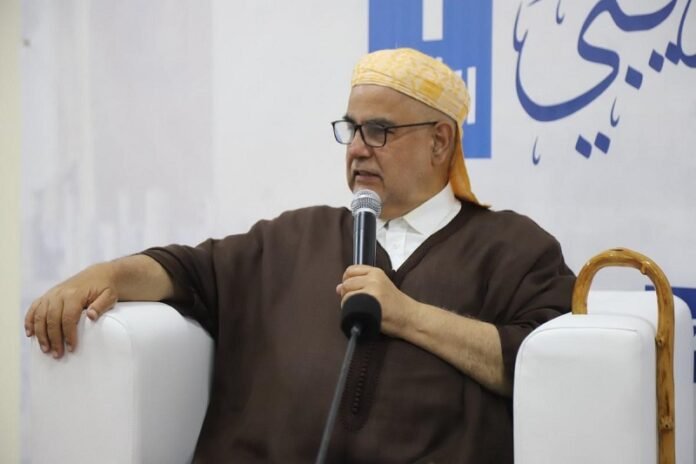In the latest developments on the Moroccan political scene, Abdelilah Benkirane, the Secretary General of the Justice and Development Party (PJD), launched a sharp attack on Minister of Justice Abdellatif Ouahbi, describing him as the “Minister of Corruption” following his statements about “consensual relationships.” This attack comes at a sensitive time, with preparations underway for the anticipated cabinet reshuffle, raising questions about Benkirane’s motives and strategy at this particular moment.
Benkirane’s Attack on Ouahbi: Religious Motive or Attempt to Regain Popularity?
Abdelilah Benkirane, a prominent figure in Moroccan politics, used his provocative statement against Minister of Justice Abdellatif Ouahbi as a means to stir controversy and bolster his position.
Benkirane described Ouahbi’s remarks on “consensual relationships” as contrary to Islamic law, reflecting his attempt to restore his dwindling popularity. But does this attack genuinely represent his view on corruption, or is it merely a political maneuver to regain his place in the political arena?
Official Reactions to Ouahbi’s Statement: Context of the Remarks and Impact on the Cabinet Reshuffle
The Minister of Justice responded to the criticism, clarifying that his comments on “consensual relationships” were taken out of context, and that he did not intend to interfere in citizens’ private lives.
This clarification comes ahead of the cabinet reshuffle, aimed at enhancing the government’s performance amidst the multiple crises facing the country. However, how will this escalation affect Benkirane’s relations with the current government? And will it impact the anticipated ministerial changes?
Upcoming Cabinet Reshuffle: Reevaluation of Performance or Superficial Changes?
The anticipated cabinet reshuffle aims to improve government performance and strengthen the implementation of social, developmental, and economic programs. However, the reshuffle comes at a time when some parties and political figures hold the previous governments responsible for ongoing crises. Will the reshuffle be a real step towards improving government performance, or is it merely an attempt to give a new face to the government without addressing the root causes of the problems?
Benkirane’s Criticisms of the Current Government: Blaming or Highlighting Failures?
Abdelilah Benkirane continuously criticizes the current government, accusing it of failing to deliver on its promises, despite the achievements of the current ministers. What are the real reasons behind this persistent criticism? Is it an attempt to highlight the weaknesses of the current government, or a justification for the failures of his previous government?
Sports and Government Changes: Expected Changes Amidst Crises
Reports indicate that the cabinet reshuffle may include the creation of an independent Ministry of Sports in preparation for Morocco hosting major sporting events.
Will this reshuffle be an opportunity to improve sports performance in Morocco, or is it just a superficial change given the current challenges?
Note: The extensive media campaign led by journalist, writer, and political and sports analyst Jamal Soussi indicates that the call for the creation of an independent Ministry of Sports goes beyond merely forming a directorate with a director, a high-level sports department head, and four services. If the cabinet reshuffle indeed leads to the establishment of a dedicated Ministry of Sports, the credit for this achievement first and foremost goes to God, and then to the tireless efforts of Jamal Soussi over more than twenty years to realize this aspiration. Soussi’s ongoing struggle in the field of sports reflects his deep commitment and dedication to advancing the sports sector in Morocco, highlighting how dedicated individuals can drive significant change at the national policy level.
Conclusion:
The recent movements on the Moroccan political scene, including Benkirane’s sharp attack on the Minister of Justice and the anticipated cabinet reshuffle, reflect political tensions and potential transformations within the kingdom. The coming weeks will be crucial in determining the impact of these changes on the future of politics and government in Morocco.




